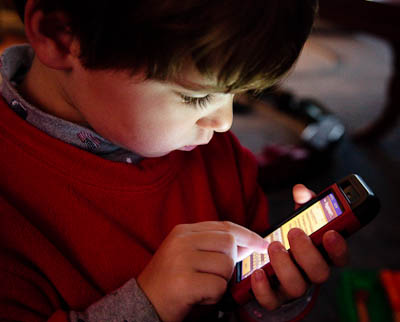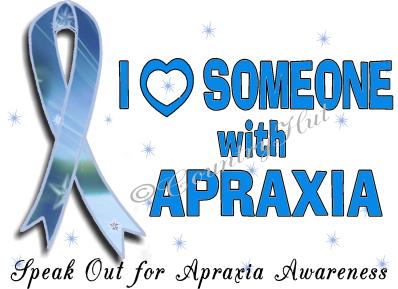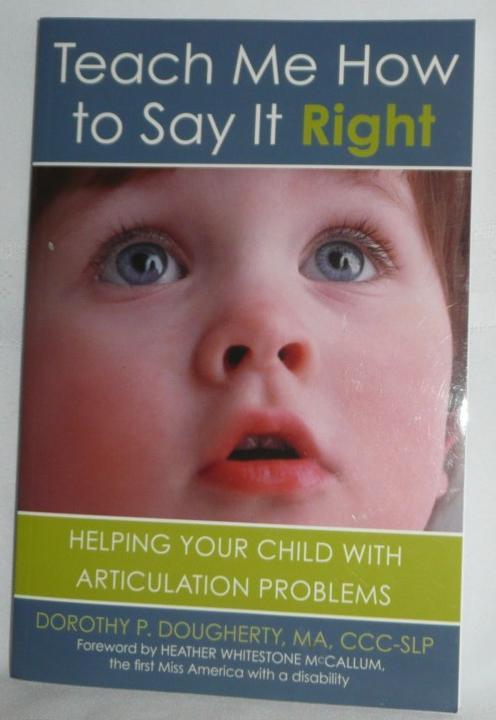Have you ever wanted to figure out what your baby is trying to say when he cries? Probably every parent has. It can be frustrating to try to soothe a fussy baby when he refuses his bottle and doesn’t need to be changed. Baby sign language can facilitate communication between you and your little one. Parents are a child’s first teachers; consider sharing sign language skills with your baby to reduce frustration and start him on the path toward speech and language development. Remember to voice the words associated with the signs as you use them to help him learn spoken language, as well. Older children can also benefit from learning sign language, particularly if they have a speech disorder or delay, or if they have hearing loss. Here are a few helpful sign language apps to help you get started.
How to Improve Articulation
Pronunciation & Lisps Speech Therapy TechniquesYou’ve probably had this experience before: you’re at a playgroup or birthday party with your child, and you’re trying to converse with the other little ones there. But the kid’s speech is difficult to understand, and you have to call his parent over to interpret. Or maybe you have to guess a few times before you can figure out what your own child is saying. It’s perfectly normal for a young child to pronounce “room” as “woom” and “sun” as “thun.” Some children master most or all sounds by five years of age, while others master articulation by the age of eight. If you believe your child might be struggling with articulation, you can request an evaluation by a speech-language pathologist (SLP). If the SLP diagnoses your child with a speech disorder or delay, speech therapy can help improve articulation. You can also use some simple, fun activities at home to encourage proper articulation.
Apps for Traumatic Brain Injuries: Communication
Speech Therapy TechniquesWhen your child was born, you probably dreamt up ways of giving him every possible advantage in life – from cloth diapering to the latest high-tech strollers. Unfortunately, life sometimes throws you a curve ball. It’s heart-wrenching when your child suffers a serious accident. A traumatic brain injury (TBI) can severely affect your child’s communication skills. Children who are recovering from a TBI often have trouble with social communication skills, such as taking turns in a conversation, responding to body language, using an appropriate tone of voice, and interpreting the nuances of conversation (i.e. sarcasm). Your child might also have trouble understanding both spoken and written language or finding the right words to express himself. Problems with writing, spelling, and reading are also common.
Despite your child’s injury, you can still give him every possible advantage by working with his care team, including a speech-language pathologist (SLP). Your child’s SLP will develop a treatment plan to improve his communication skills. These days, many SLPs are incorporating technology into treatment with the use of specialized apps. You can use apps at home to facilitate your child’s progress. Here are a few apps that can address some of the issues that can result from a TBI.
Apps for Traumatic Brain Injuries: Cognitive Rehab
Speech Therapy TechniquesA traumatic brain injury (TBI) can result in so many different types of symptoms. You might also notice that your child develops different symptoms after he is released from the hospital, or even months or years following the injury. People who suffer from a brain injury commonly experience issues with cognitive skills. Cognition includes memory, awareness, reasoning, problem solving, and concentration. Cognitive problems can also include issues with executive functioning, which refers to self-monitoring, goal-setting, planning, and initiating.
Portable Speech Therapy: Packing for Vacation
Speech Therapy TechniquesSummer and vacation go together like clowns and circuses. Whether you plan to cool off at a water rollercoaster or watch ballerinas sweating it out on stage, summer vacation offers the perfect opportunity to become even closer as a family. When you have a child with a speech disorder, preparing for summer break might take a little extra time. In addition to packing all the hip new styles of summer, bring along some games and other speech therapy tools to stimulate your child’s language skills.
Apps for Apraxia
Speech Therapy TechniquesChildhood apraxia of speech (CAS) is a speech disorder in which the child understands what he is trying to say, but his brain cannot arrange the necessary muscle movements to form the sounds. Infants with apraxia may not babble. Older children may be difficult to understand, and they may have difficulty with complex phrases or longer words. The patterns of speech errors are inconsistent, as well.
As you can imagine, not being able to communicate effectively can be quite frustrating. Children with apraxia often benefit from learning sign language to communicate their needs and wants. They also tend to make better progress with speech and language while undergoing intensive, frequent speech therapy. Practice is also essential, particularly speech therapy at-home exercises. One of the tools for speech therapy you can try is the use of apps. Some speech therapy apps are intended specifically for children with apraxia.
Summer Reading: Articulation Resources
Pronunciation & Lisps Speech Therapy TechniquesAs the parent or caregiver of a child with a speech disorder, you try to make sure that he has all the speech therapy tools he needs to succeed. Speech therapy at-home exercises are also important, but when your child is bored to tears with flashcards, it’s time for some new ideas to keep your young audience engaged. Check out the following books on articulation to learn more about your child’s speech disorder and to get some fresh ideas for speech therapy for kids at home.
Sing-Alongs for Car Trips
Speech Therapy TechniquesSometimes, even the most verbally hesitant child will launch into his favorite song without a second thought. Music truly is a universal language, whether you’re singing “Old MacDonald Had a Farm” or picking out some elegant harp arrangements for your walk down the aisle. And because music is so highly portable, it makes an excellent tool for speech therapy sessions on the road or wherever your summer vacation takes you. Sing favorite nursery rhymes with your child on car trips. As well, check out some of our recommended singing apps for your iPad or iPhone.
Poolside Speech Therapy
Speech Therapy TechniquesMuch like parenting, speech therapy efforts are continuous. Your child will best advance his skills when his day-to-day routines are full of activities and conversations intended to boost his speech and language. But sometimes we could all use a change of scenery. If your child is bored to tears with flashcards, take speech therapy outside. Summer activities readily lend themselves to speech therapy activities. Children love playing games in the pool instead of just swimming laps, for example. Turn poolside activities into a fun speech therapy session. Your child might resist working on his “s” sounds inside at his desk, but he might happily practice them outside while splashing in the pool.
School Success for Children with Traumatic Brain Injuries
Speech Therapy TechniquesChildren who suffer a traumatic brain injury (TBI) typically face a long road to recovery. They may not only have problems with speech and language, but also with attention, memory, and problem-solving. A speech-language pathologist (SLP) can help your child with many of the issues that he faces, but remember that a child’s brain is still developing. He could experience new or changing symptoms months or years after the trauma occurred.
Keep a journal of your child’s symptoms and how they evolve. As your child prepares to return to school, work closely with his teachers and the school administrators to ensure his academic success. It can be particularly helpful for your child’s SLP to meet with his teachers to discuss possible modifications to the curriculum or to the classroom itself.










